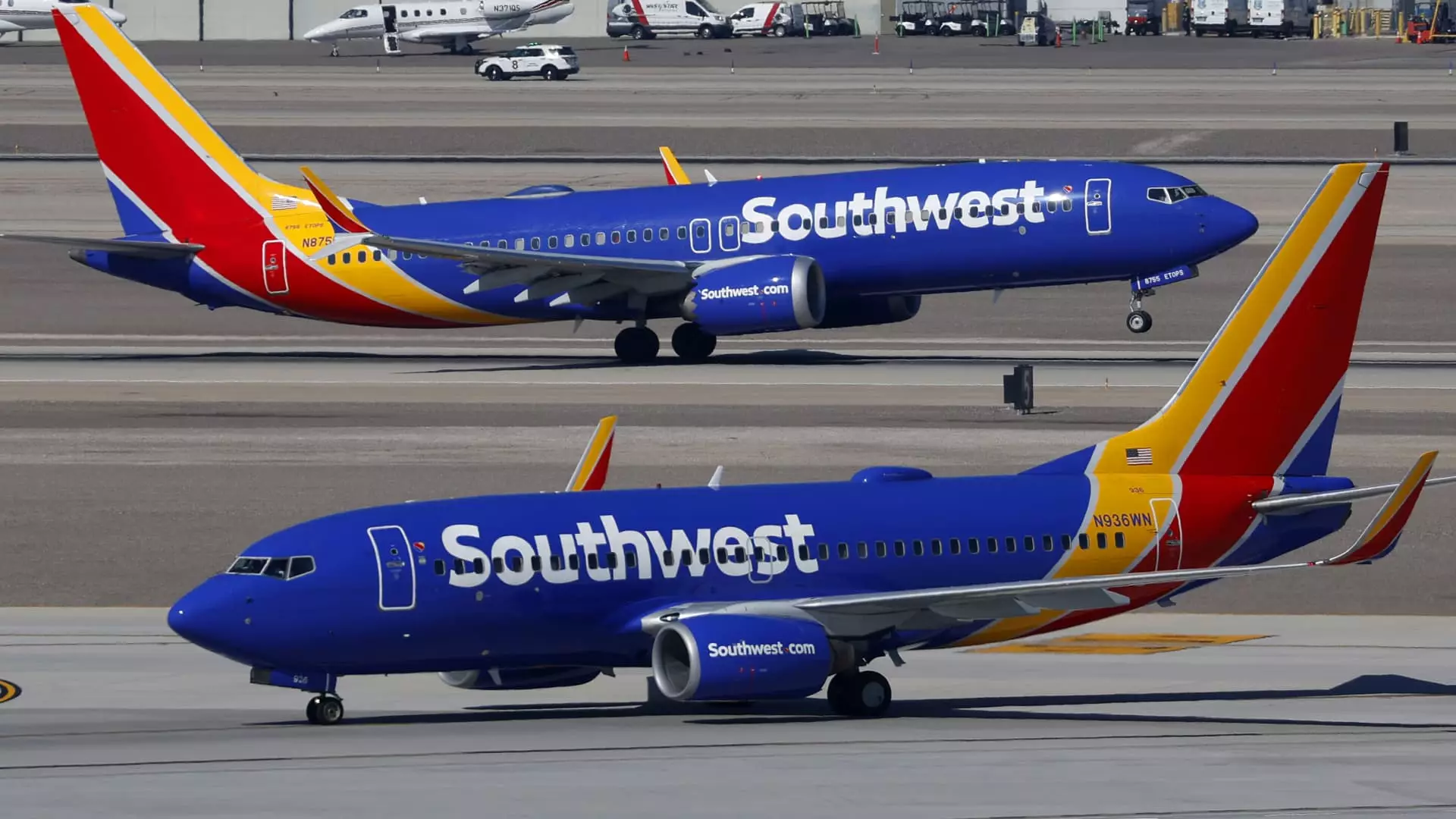Southwest Airlines, long celebrated for its rebellious spirit and customer-friendly policies, is now capitulating to the pragmatic demands of modern air travel—at the expense of its core identity. The decision to introduce assigned seating after over 50 years of open, first-come, first-served boarding marks a profound departure from its storied tradition. For decades, Southwest has thrived by fostering a sense of spontaneity, community, and egalitarian access to the coveted window or aisle seat. Now, that has been effectively discarded in favor of a structured, tiered boarding process that prioritizes revenue maximization over the experience that once distinguished Southwest from its competitors.
The airline’s longstanding open seating policy built a loyal customer base that relished the unpredictability and personal control it offered. Removing this element not only erodes the airline’s playful atmosphere but also signals a capitulation to industry standards that prioritize ancillary revenue. While the move might be presented as efficient and strategic, it ultimately sacrifices the very loyalty and distinctive culture that made Southwest genuinely beloved. It’s an abandonment of authenticity—an eroding of the airline’s identity in a bid to chase short-term profits.
Profit Motives Over Customer Loyalty: The Unsustainable Shift
Southwest’s recent pivot is driven by a desire to boost underwhelming revenue streams, a necessary evil as rising oil prices, staffing issues, and fierce competition threaten its profitability. The introduction of assigned seating, coupled with new baggage fees and fare tiering, aims to cushion the airline’s financial outlook, projecting an additional $800 million in earnings this year alone. However, this focus on revenue at the expense of customer loyalty is shortsighted and fundamentally flawed.
For many travelers, Southwest’s reputation was rooted in transparency and simplicity—no baggage fees, flexible policies, and a sense of community that emerged from shared experiences. Adding fees for checked bags and standardized seat assignments creates an environment that is far more transactional and less personal. It shifts the experience from one of camaraderie to one of commodification, alienating the very passengers who valued Southwest’s unique approach. In an era where consumers increasingly seek authentic brand loyalty and emotional connections, such cost-cutting measures threaten to backfire, driving customers elsewhere.
The new boarding groups and tiered system, while perhaps more operationally efficient, seem to overlook the emotional impact on passengers. For frequent flyers, the romance of racing to beat the clock or securing a preferred seat now gives way to a bureaucratic system dictated by fare class and loyalty status. This could drastically diminish customer satisfaction and loyalty in the long term, as travelers feel less valued and more like commodity consumers rather than participants in an airline community.
The Cultural Erosion: What Southwest Risks Losing Permanently
Southwest’s open seating was more than a policy; it was the embodiment of its cultural ethos—informal, inclusive, and fun. This policy reinforced a sense of equality—everyone had a fair shot at choosing where to sit, regardless of how much they paid. The move to assigned seating, especially with the top tiers boarding first and lower fare passengers later, subtly reintroduces social stratification into the airline’s environment.
There is an inherent risk that this shift will dilute the airline’s communal spirit. The cheerful chaos of families, solo adventurers, and spontaneous seat swaps fostered a sense of camaraderie that made flying Southwest a unique experience. Now, with the seat assignments likely to become more rigid and the boarding process more regimented, that lively, impromptu atmosphere will diminish significantly. The airline risks losing its essence as a disruptor—once a bold alternative to the more stuffy, premium-dominated competitors—replaced by a more conventional, corporatized service model.
Furthermore, this transformation sends a challenging signal to both customers and employees: that Southwest values profits and efficiency over its guiding principles. Employees, historically the brand’s most passionate ambassadors, may find it harder to uphold the fun, inclusive image when the operational framework emphasizes revenue metrics over passenger experience.
The Future of Southwest: A Dilemma Between Profit and Purpose
In its quest to stay afloat financially, Southwest is treading a fine line that could compromise its long-standing reputation. While some may argue this shift is necessary in the cutthroat airline landscape, it raises questions about the sustainability of a business model grounded in customer goodwill and cultural distinction. Will loyal travelers accept this erosion of their cherished experience, or will they seek alternatives that preserve the community-focused atmosphere?
Southwest’s strategy highlights a broader industry trend where profitability often trumps customer-centricity. Yet, history suggests that brands rooted in authenticity and a genuine connection with their consumers tend to endure longer. Southwest’s gamble on more traditional revenue models—adding fees, assigned seating, and tiered boarding—could threaten its uniqueness and the emotional loyalty that once made it a standout. If the carrier loses the informal charm that attracted a dedicated following, it risks becoming just another airline swept along by industry-standard practices, ultimately diluting the very qualities that gave it its distinctive edge.

